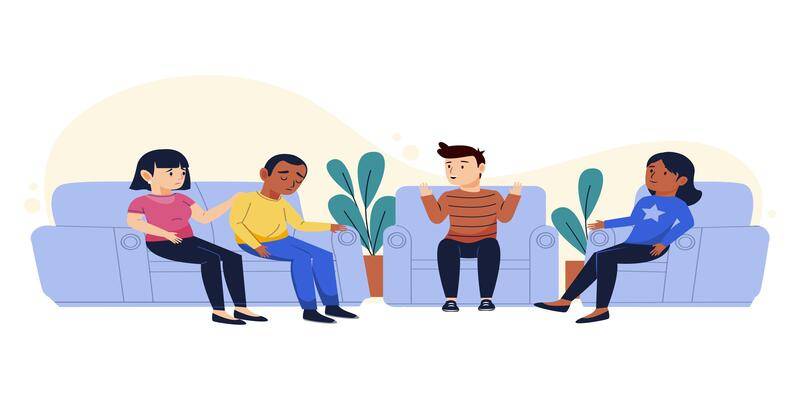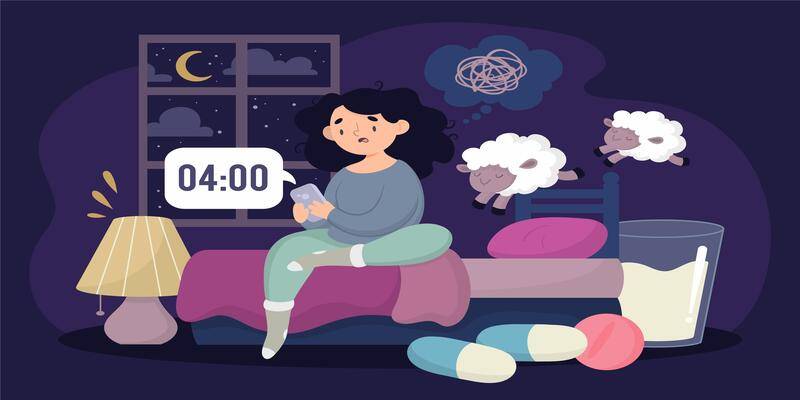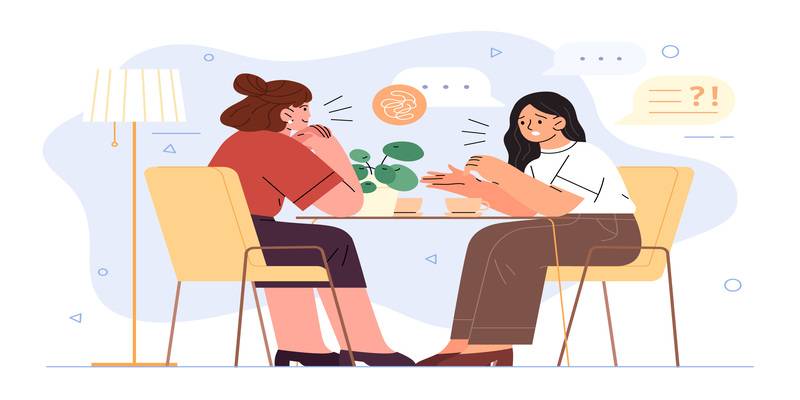Normalising conversations around therapy with family

As a mental health expert, I hope there comes a time when I or anyone else for that matter, does not feel surprised to hear about someone going for therapy. I hope that it becomes normal for people to talk about therapy and understand that it is an integral part of our lives. Honestly, it should be as normal as talking about the latest trending show such as Squid Game, or about that long drive you went for, or about your parents ageing and how it is weird and overwhelming. You know what I mean right? Just normal stuff. As a therapist, when I hear distant relatives or an acquaintance or a friend of a friend tell me that they go for therapy, I feel content. At the same time, that happiness is short-lived because people tend to talk about it as if it is not normal.
Going for therapy is still very fresh and new to many people that it doesn’t come as a surprise to me anymore. Let’s do a reality check. Therapy is an essential mode of communication, interaction, and a connection that helps us deal with an array of issues related to our family, life, relationships, work, emotions, and thoughts. For the longest time, therapy as a word has been misunderstood. Therapy is a lot more than just sitting on a couch and expressing your emotions and feelings. It has a lot to do with internal work, finding yourself, understanding and learning new coping strategies, accepting one’s flaws and changing unhealthy behaviour. It is not just about getting diagnosed with a mental illness.
Often, clients talk about different aspects while seeking therapy. One of the many questions I have addressed on a regular basis is about confidentiality. Let’s understand client confidentiality in therapy. Client confidentiality states that when a client enters a therapy space or a therapeutic relationship, both parties – the client and the therapist – sign an agreement where whatever they discuss in the session cannot be disclosed at any cost. Only if the client is likely to self-harm or harm others, then it can be disclosed, but under no other circumstances, can the discussion, interaction, and communication be disclosed with anyone.
This step is taken to protect the client’s narrative and to make sure they feel extremely safe and comfortable to share things about their life that they wouldn’t otherwise to their family, friends, partner, work colleagues etc. Clients come and discuss confidentiality for many reasons. One of the main reasons is that their parents are not aware that their child is taking therapy. Imagine, your caregivers, and your parents not knowing such an important part of your life journey only because there is so much judgment and stigma around therapy.
It is disheartening to see how parents have a close-minded approach to therapy even though how liberating and eye-opening it can be. The problem with parents/caregivers in today’s day and age is that they associate any shortcoming, downfall, issues, trauma etc., with the child’s routine and usage of social media/phone. Yes, that might be one of the many reasons for the problems in a person’s life, but it doesn’t end there. Everyone is fighting a different battle in their head that we don’t know about. There is so much that a child goes through and has a lot to deal with others might find trivial.
Clients tell me how they don’t want their parents to know about their therapy sessions and how they feel disheartened and even angry at times about the fact that their parents will never understand therapy and what it does for them. We all need a safe space, and a sense of support to talk about things that bother us. No problem is too big or too small, we all just want to be heard… to feel validated and a sense of comfort that whatever we are going through will change with time.
When I was growing up, people hardly talked about mental health but I did watch TV shows around mental health, sex education, feminism, and women literacy that opened my eyes to the world, to see it from a different lens altogether. No one in my family spoke about therapy, but here I am, changing the narrative. The current and future generations have to take the onus on their shoulders to talk more about mental health. We need to understand that many people are still unaware and lack education when it comes to mental health, therapy, and sex education.
We as a generation need to come forward, take up this responsibility with full determination to educate people. To inform them, to guide them through this and eventually normalise it for everyone. However, the question remains unanswered. How to normalise conversations around therapy with family? Here are some ways in which we can talk about therapy and try to achieve the same.
Talk about emotions more freely:
The more we talk about our emotions freely and express what we “actually” feel, we can normalise the fact that a person can’t be “happy” all the time. The more we normalise the bad and good side of emotions, it would be okay to seek support when things go out of hand.
Psychoeducation
Understand that therapy helps you face yourself, your unhealthy behaviours, your radiance, things you’ve suppressed, your unrecognised emotions, everything. Therapy helps in putting a mirror in front of you. You can now look at yourself, understand yourself, and become a better person.
Watch mental health shows/movies together
Watching shows and movies that highlight therapy is a good way to familiarise your family members about mental health. Just how going for a physical health check-up every three months is important, similarly, going for a mental health check-up is equally vital.
Differentiate between family and therapy
Talk about your mental health with your parents through psychoeducation. Tell them that not everything can be resolved with the help of friends and family. Family and friends, your partner or your colleagues, all of these individuals in your life will have an unsaid bias towards you. They have preconceived judgments about you that keep changing based on your relationship with them. That is why it is important to seek external support: Therapy.
Don’t overwhelm them
Therapy is not just about diagnosing someone with a mental illness, it is much more than that. It can get hard for some people to understand the basic concepts of mental health and how it works. Don’t expect your family or your parents to understand everything in one go. Give them time to accept things, all of this has been alien to them. It is a fresh perspective and slowly taking it all in is the only way to go.
Give them real-life examples
Tell them about your first-hand experience with therapy and how it helped you. When you give examples where someone has gone through things and has experienced the change, it helps build credibility. We tend to understand the ordeal better when we know that we are not alone. It’s just that our parents were never educated or made aware of mental health, and the need for therapy. It is our moral duty to educate them, make them understand how important it is and it shouldn’t be looked down upon. They’ve been in the dark for so long that accepting this can be hard. However, slowly and steadily we are getting there.
Casually mentioning to your friends, family, work colleagues that you seek therapy is a great way to normalise going to therapy for our generation. We need to start having conversations around such topics and talk about them like it’s an everyday occurrence. Therapy is normal. Looking after your mental health is normal. Going through issues and problems related to mental health can feel like a challenge. It can be difficult but with the changing times, things are looking brighter. With our families understanding our problems and supporting us, the journey towards healing will be a lot easier and smooth. Let’s pledge to normalise therapy, have discussions around mental health and its importance in our lives. Let’s get there by taking one step at a time.






